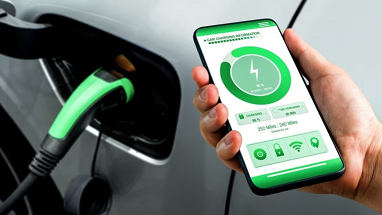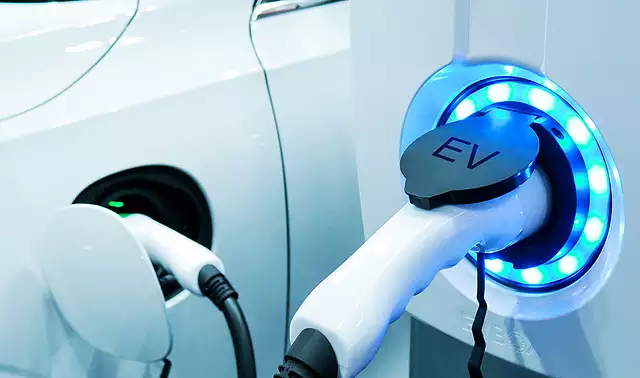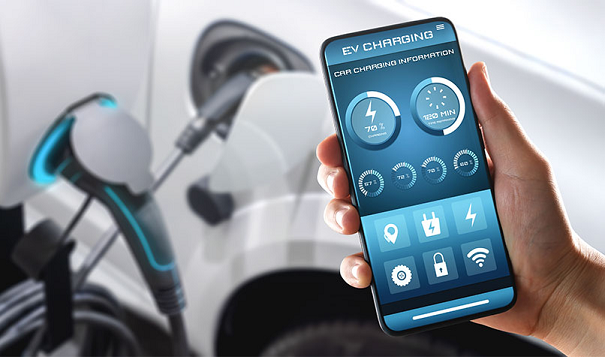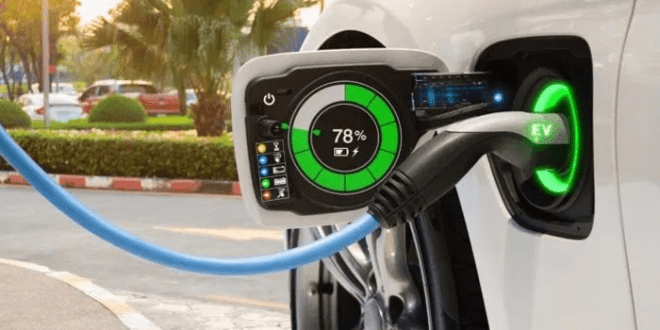Kenya’s EV Charging Station with E-Mobility Tariff
Kenya’s transition to sustainable transportation has taken a significant leap forward with the launch of the country’s first electric vehicle (EV) charging station connected to the new E-Mobility Tariff. This milestone development signals Kenya’s commitment to promoting electric mobility and reducing carbon emissions in the transportation sector. The integration of electric vehicles into Kenya’s transportation infrastructure is part of a broader global trend aimed at achieving a greener and more sustainable future. In this article, we will explore the significance of this event, the benefits of electric vehicles, the implementation of the E-Mobility Tariff, and the potential impact on Kenya’s transportation landscape.

I. The Significance of the First EV Charging Station
The inauguration of the first EV charging station in Kenya marks a crucial milestone in the country’s journey towards sustainable transportation. The advent of electric vehicles presents an opportunity to reduce the nation’s dependence on fossil fuels and combat climate change. With Kenya’s commitment to the Paris Agreement and its ambitious renewable energy targets, the launch of the charging station represents a tangible step towards achieving these goals.
The establishment of EV charging infrastructure is a vital prerequisite for the widespread adoption of electric vehicles. By providing a convenient and accessible charging network, the charging station encourages the uptake of EVs among both private and commercial vehicle owners. This development will contribute to the reduction of greenhouse gas emissions, air pollution, and noise pollution, improving the overall quality of life for Kenyan citizens.

II. Benefits of Electric Vehicles
The introduction of electric vehicles brings numerous benefits to Kenya, including environmental, economic, and health advantages. First and foremost, EVs have zero tailpipe emissions, significantly reducing air pollution and improving air quality in urban areas. This reduction in pollutants, such as nitrogen oxides and particulate matter, can have a substantial positive impact on public health by reducing respiratory and cardiovascular diseases.
Furthermore, electric vehicles offer a more sustainable alternative to conventional internal combustion engine vehicles. Kenya, with its abundance of renewable energy sources, can leverage its existing clean energy infrastructure to power electric vehicles. By transitioning from fossil fuel-powered vehicles to EVs, the nation can reduce its carbon footprint and make substantial progress towards its renewable energy targets.
In addition to environmental benefits, EVs also provide economic advantages. Electric vehicles have lower operating costs compared to traditional vehicles powered by gasoline or diesel. The cost of electricity per kilometre travelled is typically lower than that of conventional fuel. Additionally, the maintenance and servicing of EVs are generally more affordable due to fewer moving parts and less wear and tear on components.
III. The Implementation of the E-Mobility Tariff
The successful launch of the first EV charging station in Kenya is closely tied to the implementation of the E-Mobility Tariff. The tariff sets the framework for electricity pricing specifically tailored to electric vehicle charging. The introduction of this specialized pricing structure is crucial in incentivizing the adoption of electric vehicles by providing favourable electricity rates for charging.
Under the E-Mobility Tariff, EV owners can benefit from off-peak electricity rates, ensuring that charging their vehicles is both cost-effective and convenient. This approach encourages drivers to charge their vehicles during times of lower electricity demand, maximizing the utilization of the existing grid infrastructure. By balancing the load on the electricity grid, the tariff promotes the efficient use of renewable energy resources and reduces strain during peak periods.
The implementation of the E-Mobility Tariff also paves the way for the future integration of smart charging technologies. These advanced systems can optimize charging patterns, taking into account factors such as renewable energy availability and the overall electricity grid’s stability. Smart charging solutions enable vehicle-to-grid capabilities, allowing EVs to serve as decentralized energy storage systems and contribute to grid stability.

IV. Impact on Kenya’s Transportation Landscape
The launch of the first EV charging station connected to the E-Mobility Tariff will have a transformative impact on Kenya’s transportation landscape. As the adoption of electric vehicles grows, the demand for charging infrastructure will increase. This presents opportunities for investment and job creation in the manufacturing, installation, and maintenance of EV charging stations across the country.
Furthermore, the expansion of the charging infrastructure will promote the growth of the electric vehicle market. With improved access to charging stations, potential EV buyers will have the confidence to switch to electric mobility. This, in turn, will drive competition among automakers, leading to a broader range of electric vehicle models available in the Kenyan market.
The transition to electric mobility will also create a ripple effect on the energy sector. The increased demand for electricity resulting from EV charging will incentivize the development of renewable energy projects, further diversifying Kenya’s energy mix. The integration of electric vehicles into the grid can enhance grid resilience and support the country’s vision of achieving universal electricity access.
Conclusion
The launch of the first EV charging station connected to Kenya’s new E-Mobility Tariff is a ground-breaking step towards sustainable transportation in the country. Electric vehicles offer numerous environmental, economic, and health benefits, aligning with Kenya’s commitments to combat climate change and promote renewable energy. The implementation of the E-Mobility Tariff supports the growth of the electric vehicle market by providing favourable pricing structures and encouraging off-peak charging.
Kenya’s journey towards electric mobility will bring about a paradigm shift in the transportation sector, fostering investment, job creation, and technological innovation. As the charging infrastructure expands and more EVs hit the roads, the positive impacts will extend beyond the transportation sector, contributing to a greener and more sustainable future for Kenya.
By Abdul W Moghul
 MVNO MVNE MNO Mobile & Telecoms industry intelligence Telecoms Jobs, News and Business
MVNO MVNE MNO Mobile & Telecoms industry intelligence Telecoms Jobs, News and Business






